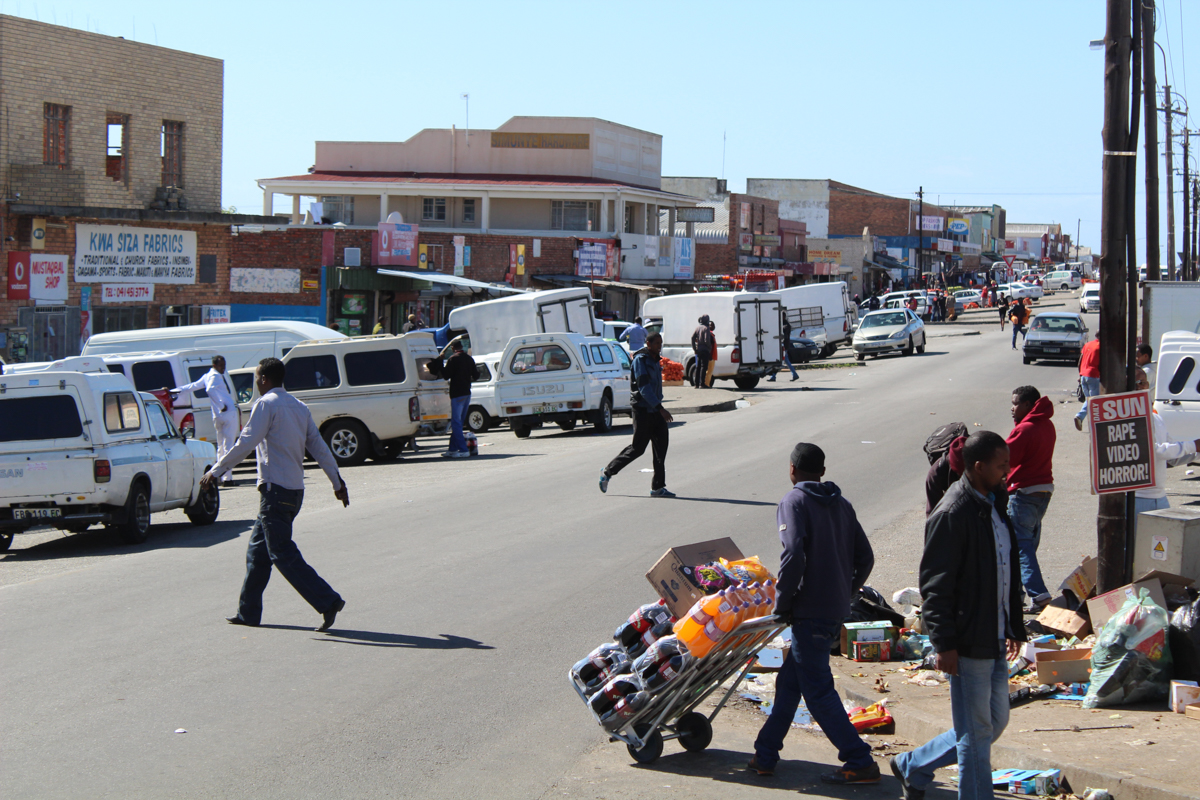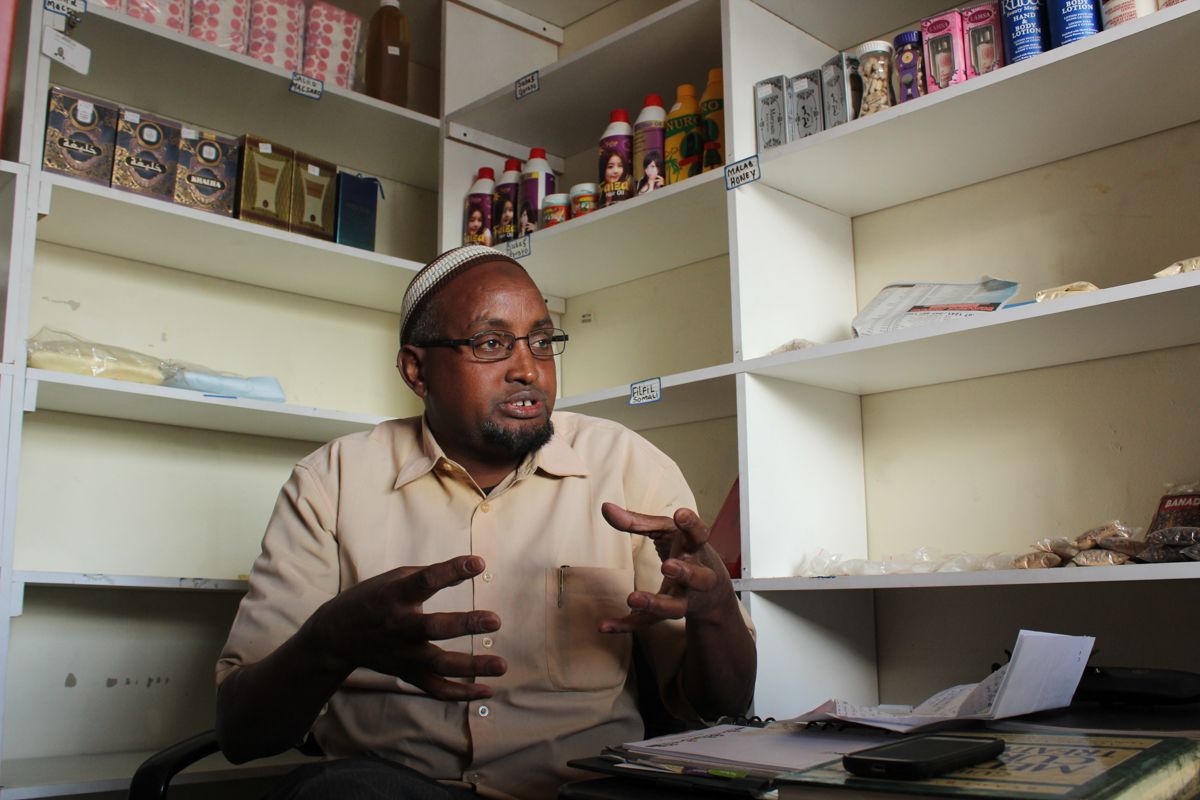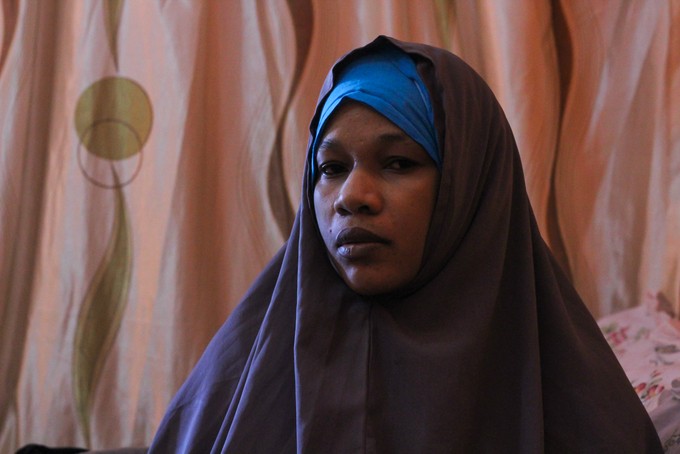Silent war on Somalis in Port Elizabeth
Hardly a day goes by without an attack, says Somali community
Aisha Ali Noor, 29, sits on the bed in her dimly lit, first-floor apartment on Durban Road in the Port Elizabeth suburb of Korsten. It is 7:30 am, and outside her window the road is already alive with activity as shop owners and traders load their bakkies with stock from the numerous Somali wholesalers that line both sides of the street.
“I’m afraid all the time,” Noor tells GroundUp via a translator. “I don’t go out anymore unless I have to. I’m worried I will be killed.”
Noor came to South Africa in 2011 after losing both her parents in Somalia. She left four children behind and joined her husband in Port Elizabeth.
In 2014, Noor’s husband and his business partner were stabbed to death in front of her in their spaza shop in Motherwell, Port Elizabeth’s largest township.
Noor managed to escape, but she says she has been robbed and assaulted “six or seven times” since then. She showed GroundUp a number of police statements and case dockets that support her claims. In the most recent incident, which was reported on 26 February, she was so badly beaten that she had to be hospitalised.

According to Fwamba Mukole, manager of Port Elizabeth’s Refugee Centre, a United Nations funded project, Noor’s experiences are far from unique in the city, which has an estimated Somali population of around 6,000.
“Robbery of Somalis is happening on an almost daily basis here,” says Mukole, “and it’s almost always accompanied by serious violence.”
Mukole, who arrived as a refugee from the Democratic Republic of Congo and has since married a South African, works closely with a number of refugees and asylum seekers from the local Somali community. He claims that most of the Somalis that come to his offices will not even take public transport for fear of being harassed, attacked, or robbed.
“It’s like they are living in an open prison,” he says.
Mukole currently shares his offices with Shureim Said, 27, chairman of a newly-formed Somali NPO called the Integrated Development for Peace Initiative (IDPI), which assists the Refugee Centre as a mediator between the Somali community, many members of whom struggle with English, and hospitals, the police, and property owners. IDPI also provides financial assistance to families who have lost their breadwinners in attacks.
Said came to South Africa in 2005. His mother had moved him from Somalia to Dadaab refugee camp in Kenya when he was a small child. Said attended primary school in the camp until his mother died, and then his uncle brought him to South Africa.
Said says that in 2008 he was “almost killed” whilst taking a taxi through Port Elizabeth with his sister. He had asked a fellow passenger to move up because the passenger was sitting too close to his sister and making her feel uncomfortable. The passenger responded by assaulting him.
“Then the taxi driver stopped and joined in, the conductor too, and even the passengers. They were all beating and kicking us. Someone stabbed me in the back. I was crying; my sister was crying. No one helped us.”

Jean Misago, a researcher at the African Centre for Migration and Society, believes that much of the animosity towards Somalis both in Port Elizabeth and across South Africa is founded on perceived competition with unemployed South Africans and township businesses.
He says, “There has always been confusion as to the rights of asylum seekers in South Africa … There’s a belief among local business owners that asylum seekers are not allowed to run businesses. This hasn’t been clarified by Home Affairs. So people claim that the Somalis are breaking the rules of the country and that if the government is not going to resolve this they must take the law into their own hands.”
Misago says that although major outbreaks of violence against foreign nationals in 2008 and more recently in 2015 received significant media attention, “when you go into the affected communities, you can’t see anything that can prevent the violence from happening again. There has been no political will to address this as a serious concern, probably because the government’s line has always been one of denial.”

Sandile Nzanzeke, the local ANC Ward Councillor for Motherwell, where Said and Mukole say most attacks occur, said he had no knowledge of attacks on Somalis in the area and maintained that the local community had a “good relationship” with the Somalis.
The Mayor’s office did not respond to GroundUp’s queries.
Captain Andre Beertge, police spokesperson for Motherwell, conceded that there are regularly violent robberies of shops owned by foreigners in the area, but he said that these owners were not being specifically targeted based on their nationality.
“Almost all shops in the township are foreign owned,” Beertge said. “So this isn’t about xenophobia. It’s just criminality.”
Beertge said SAPS had “tried its best to engage with the Somali community and make them feel safe,” but these efforts were hampered by “a tendency of Somalis to be reluctant to open cases.”
This contradicts what GroundUp found. Almost all Somalis interviewed for this story produced documentation pertaining to cases they had lodged with the police. The oldest case went back to 2010; the most recent was lodged on the 22 September 2016. All complainants claimed that their cases were still unresolved.
Amir Sheikh, Chairman of the Somali Community Board, says data gathered by his organisation suggests more than 100 Somalis are killed in South Africa every year. The number of convictions nationally since 2008 is still in single figures.
Sheikh says the police have been “completely useless” in terms of putting a stop to the violence.
Shureim Said sums up the Port Elizabeth Somali community’s relationship with the police as follows: “The police don’t care. Even if you call them, they won’t even come. When they hear your voice, that you are a Somalian, they just put the phone down on you. Sometimes when you ask why they don’t help, they just ask you why you don’t go back home.”
He says experiences of state hospitals are similarly unfavourable.
Back on Durban Road, nestled among the bustling wholesalers, Abdirisack Aden, 50, sits behind the counter in his small, well-stocked pharmacy.
Aden fled Somalia to escape a violent outbreak of ethnic violence in 2003. He’d been studying a degree in medicine at a local university but left before he could graduate.
Aden also runs a hostel for Somalis out of his home in Korsten. Many of his tenants have lost property in the townships. Aden previously ran his own businesses in Motherwell, but after one of his shops was looted he “left everything” and refused to do anymore business in the townships.
According to Aden, the violence against Somalis is getting worse, not better.
“If two or three days pass without an attack on Somalis, I’m surprised. We came to South Africa to try to escape a war zone. But we just moved from one war zone to another war zone.”
Update: Mayor’s office responds:
“The Municipality’s new leadership has placed special emphasis on safety and security. We have increased visibility of municipal security services through frequent road blocks and patrols. In addition to this, we aim to have 50 fully-trained metro police officers on the streets by the end of the year. The safety of all residents, including foreign nationals, is of critical importance to the administration.”
Next: Concourt judgment: a victory for spouses of farm workers
Previous: Hout Bay’s patrollers accused of being vigilantes who target innocent people
© 2016 GroundUp. 
This article is licensed under a Creative Commons Attribution-NoDerivatives 4.0 International License.
You may republish this article, so long as you credit the authors and GroundUp, and do not change the text. Please include a link back to the original article.



